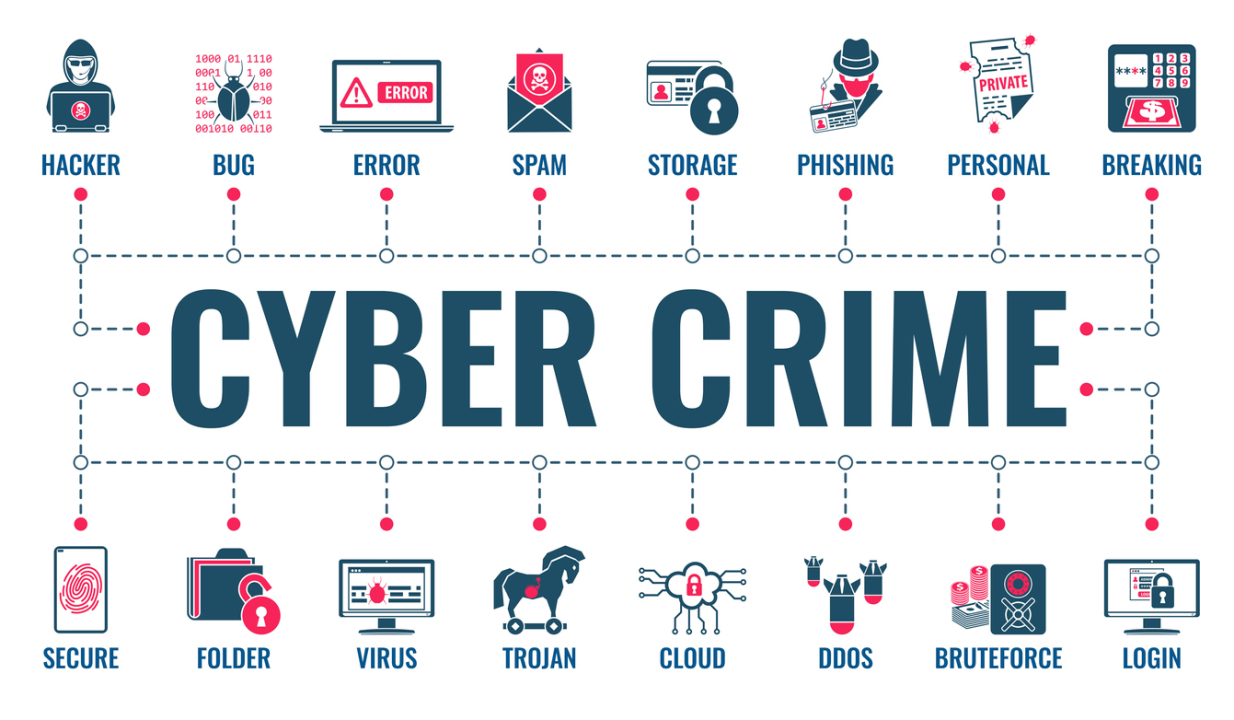If you’ve been charged with a cybercrime – or are currently facing cybercrime allegations that you believe could lead to charges – you need to take a step back and consider how to protect yourself.
What Are Cybercrimes?
Cybercrimes are basically illegal activities that involve the use of computers, networks, or other technology to commit crimes. These crimes can range from things like hacking into systems to steal sensitive information to more elaborate schemes like identity theft or phishing.
In fact, the definition of what falls under the category of a cybercrime is constantly expanding. It now includes activities like distributing malware, launching ransomware attacks, or using digital platforms for illegal activities like human trafficking or child pornography.
What makes cybercrimes especially dangerous, from a defense perspective, is that new precedents are being set every day. This means charges, rulings, and penalties can be unpredictable. That’s why it’s important to build a proactive defense right away.
4 Ways to Protect Yourself
If you’re facing cybercrime charges – or believe you’ll be charged in the near future – it’s a good idea to be prepared.
- Hire an Experienced Federal Crime Lawyer
One of the best steps you can take is hiring a lawyer who specializes in federal crimes, particularly cybercrime. These cases involve complex laws and technical details that require an attorney with expertise in both criminal defense and technology.
A skilled federal crime lawyer will evaluate the evidence and help identify weaknesses in the prosecution’s case. They’ll then work with you to build a defense that’s specifically tailored to your situation. For example, they might challenge how evidence was obtained, argue that you lacked intent, or question the reliability of technical data presented by the prosecution.
The stakes in cybercrime cases are high, so it’s helpful to have an advocate who understands the nuances of federal law and can represent you with confidence. This isn’t something you want to handle on your own.
- Preserve Evidence
Evidence is the foundation of any cybercrime case, and how you handle it can impact your defense. If you suspect you’re under investigation or have already been charged, avoid tampering with or destroying digital evidence. This includes files, emails, or any electronic records that could be relevant to your case.
While it might be tempting to delete sensitive information, doing so can really harm your defense and lead to additional charges for obstruction of justice. Instead, gather and preserve any evidence that could support your case, such as communication that prove your intent or logs that show you didn’t access certain systems.
If you aren’t sure of what to do, your attorney can advise you on how to handle digital evidence properly and ensure it’s presented in a way that strengthens your defense.
- Use Your Fifth Amendment Rights
When facing cybercrime charges, remember that anything you say can be used against you in court. This applies not only to conversations with law enforcement but also to what you post online or discuss with friends and family via emails, DMs, text messages, phone calls, etc.
If law enforcement wants to question you, politely decline to answer any questions until your attorney is present. Your attorney will help you to communicate effectively and avoid unintentionally incriminating yourself. And know this: Silence isn’t an admission of guilt – it’s a smart strategy that can protect your rights.
- Review How Evidence Was Collected
In many cybercrime cases, the prosecution relies heavily on digital evidence, such as computer logs, emails, or IP addresses. However, the way this evidence was obtained is just as important as the evidence itself.
Law enforcement has to follow strict protocols when conducting searches, seizing devices, and gathering digital information. If they violated your Fourth Amendment rights by conducting an illegal search or seizure, your attorney can argue that the evidence should be excluded from the case.
For example, if your devices were searched without a valid warrant or if law enforcement exceeded the scope of the warrant, that evidence may be deemed inadmissible in court. A federal crime lawyer with experience in cybercrime cases will carefully review how the evidence was collected and challenge any violations of your rights.
Put Your Best Defense Forward
It’s easy to grow frustrated and angry with a long, drawn-out criminal process. However, it’s important to remember that this same process gives you the ability to defend yourself. Make smart choices, be proactive, and don’t give up prematurely.
Keep an eye for more latest news & updates on Mystories List!
